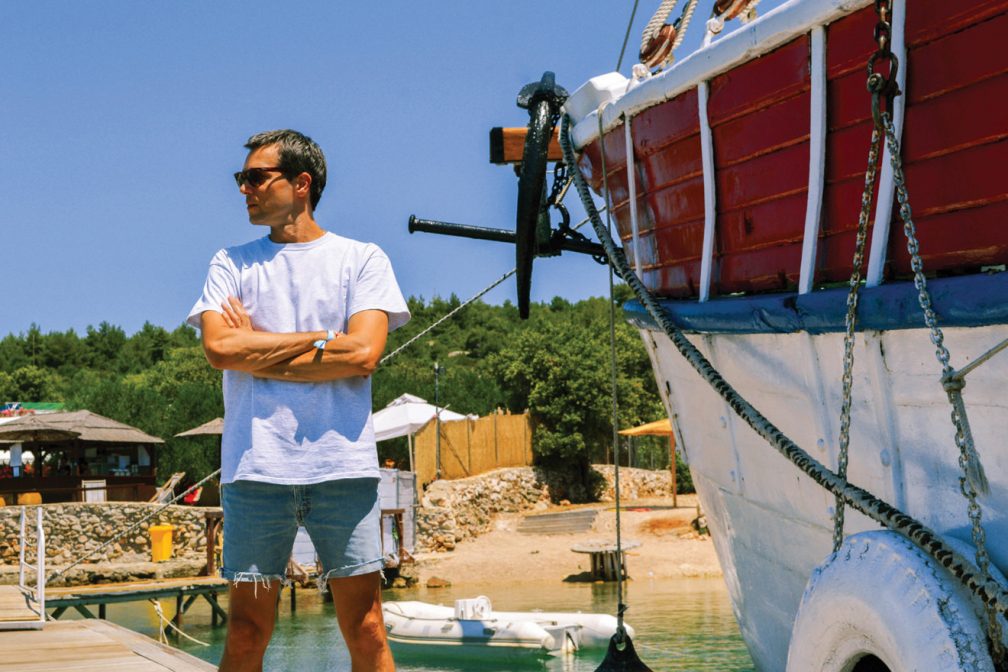 Artists
Artists
The Time Bandit: Roman Flügel
The German producer is always looking forward
Mixmag is sitting in what was once a family campsite in Yugoslavia. Now, it’s a festival venue in Croatia. Fifty yards away is a 130-year-old boat once used to transport drums of new supplies to local businesses. Now it’s used to transport drums of new disco to hammered Londonites. We’ve just completed a shoot involving a 70s style glitter ball. Last night, that same ball shimmered over a dancefloor comprised mostly of 20-something Brits wearing 80s French tennis gear and drinking 2016 craft beer.
“Good music is about re-interpretation. Mostly the re-interpretation of history,” says Roman Flügel. Arguably, he’s at precisely the right festival.
The tall, thoughtful German is the musical equivalent of déjà vu. Even if you think you haven’t heard of him, you’ll have heard his music. He’s operated through around nine aliases (“Perhaps nine, yes,” he says. “I mean... gosh, I really don’t know how many”). He’s released on a succession of labels, three of which were co-owned by the man himself, and he’s done remix duty for the likes of the Pet Shop Boys, the Human League and Kylie Minogue. Oh, and Alter Ego – the early 00s group that essentially kicked electro into the mainstream? One half of that was Roman Flügel.
We sit in a formerly eye-wateringly ugly, now eye-wateringly pricey cafeteria overlooking the assisted unreality of Love International festival. It becomes clear over a string of coffees that Flügel isn’t interested in the cross-referencing, cratedigging and genre trainspotting elements that comprise the backbone of his native industry. “You know, people are really into making these deliberately old fashioned house tracks right now.” He shrugs a set of thin shoulders, a look of academic amusement flickering across his face. “Why? I mean, why would you make a 90s house track, out of 90s samples? That’s been done, so what’s the point?”
Roman grew up in the German town of Darmstadt. His teenage years coincided with the fall of the Berlin Wall. Hindsight is always resampled, but it’s arguably this that set the tone for Roman’s attitude to music. In 1986 and ‘87, at just-about drinking age, Roman began exploring both his local and the Frankfurt and Berlin club scenes, all of which had begun to play electronic music imported from the US. A present from a friend in ‘87 of a Chicago house vinyl compilation series was the next step. “It was the energy,” he says. “The abstraction. It was sexy, and very powerful”. By ‘88, Roman had abandoned his previous pursuit of drumming in a local rock band and was now playing as part of a “local DJ crew” in his hometown, another member of which was emerging local star Ricardo Villalobos. But it was the fall of the Berlin Wall in 1990 and the resultant subculture revolution that really got the young Roman fired up. He deided to drop out of his music degree at a local university because classical composition and learning the traditions “just didn’t seem right anymore”.


